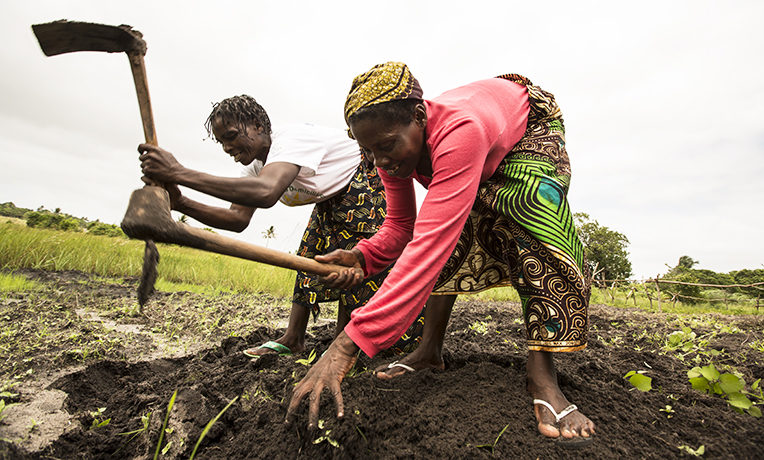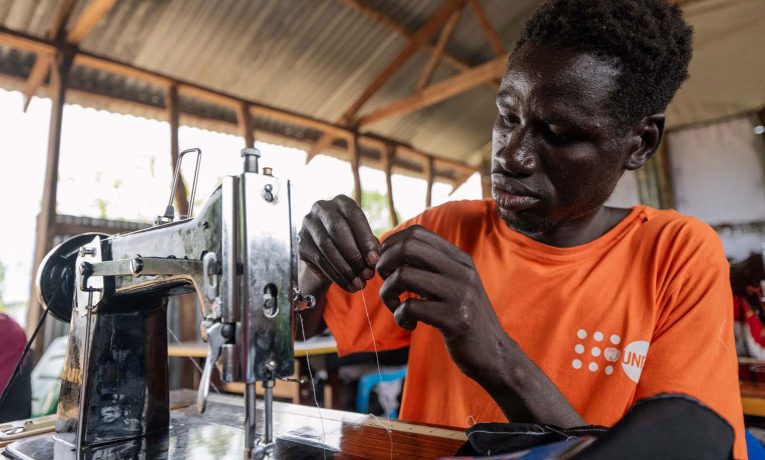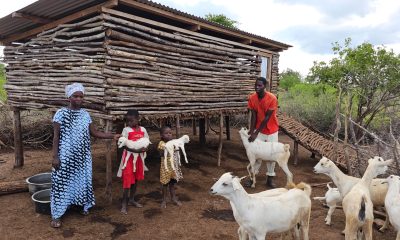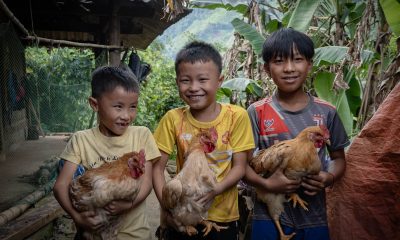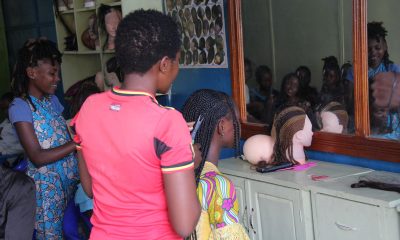Through Samaritan's Purse livelihoods training, God is rebuilding lives in a land still reeling from war.
Twelve years ago, Timothy was running for his life. His family had warned him to flee Juba, South Sudan’s capital, as civil war erupted along tribal lines. As a member of the Nuer people, staying would have meant death.
So, he ran—from city to town to village, never knowing where he’d sleep or if he’d survive another day.
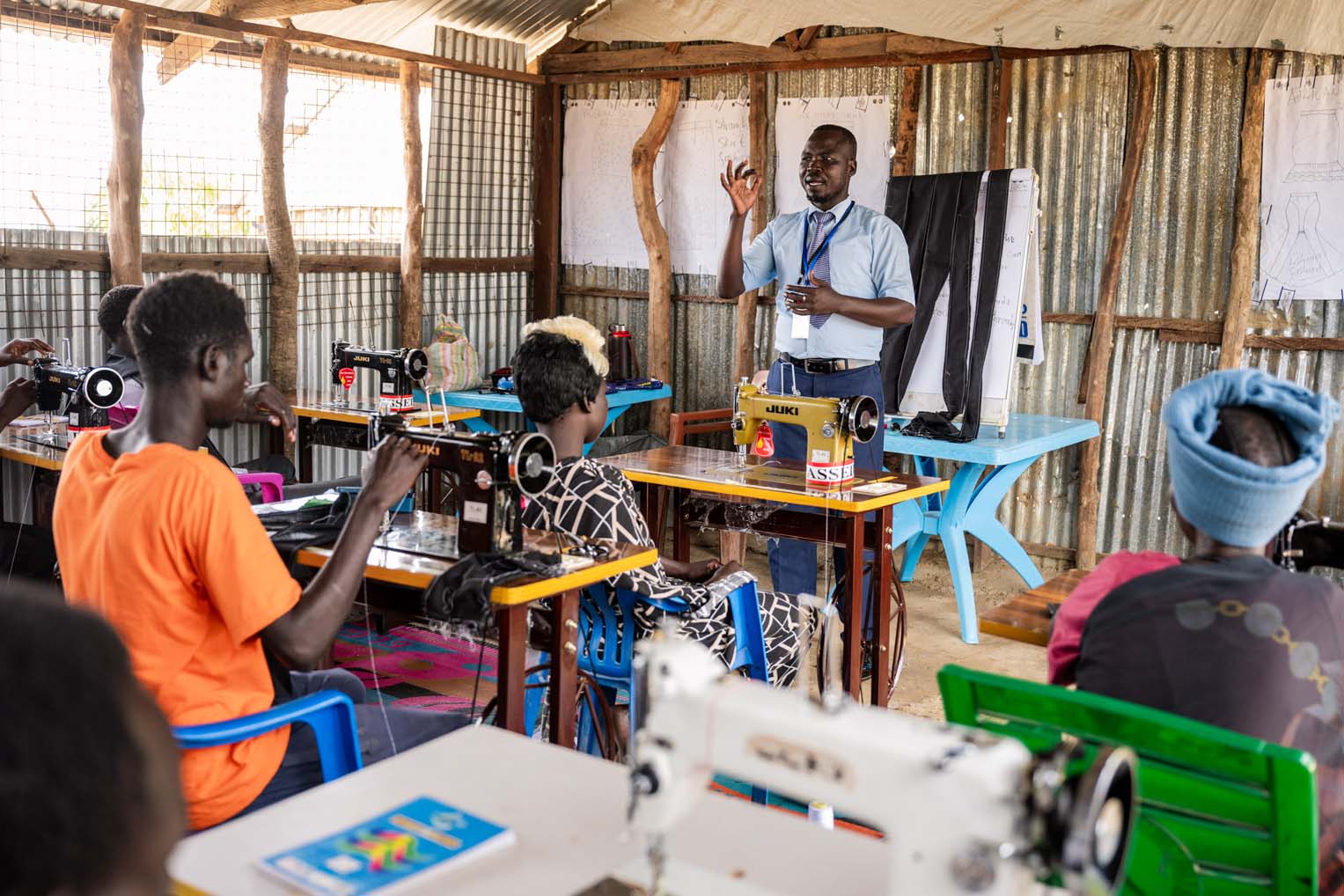
Instruction in Timothy’s tailoring class is also paired with Biblical instruction on conflict management and the truth of the Good News of Jesus Christ ruling in people’s hearts.
Later, he learned that at least three of his classmates, maybe more, had been killed simply because of their tribe. “The conflict changed everything for us,” he said.
Today, the same feet that once carried him to safety now work the pedals of a sewing machine Samaritan’s Purse is teaching him to operate. Timothy’s face shows stern concentration as he stitches fabric that will become a dress. At age 21, newly married and building a life hundreds of miles from where he grew up, he walks several hours each week to attend tailoring class in the town of Mankien—without fear.
“Without peace, you cannot even go from here to there,” Timothy reflects. “You cannot cultivate your fields. You cannot even sit in a class like this.”
Learning Skills, Building Bridges
Timothy is halfway through Samaritan’s Purse’s six-week tailoring program, one of several livelihoods classes we offer in the region along with training in agriculture, livestock, and baking.
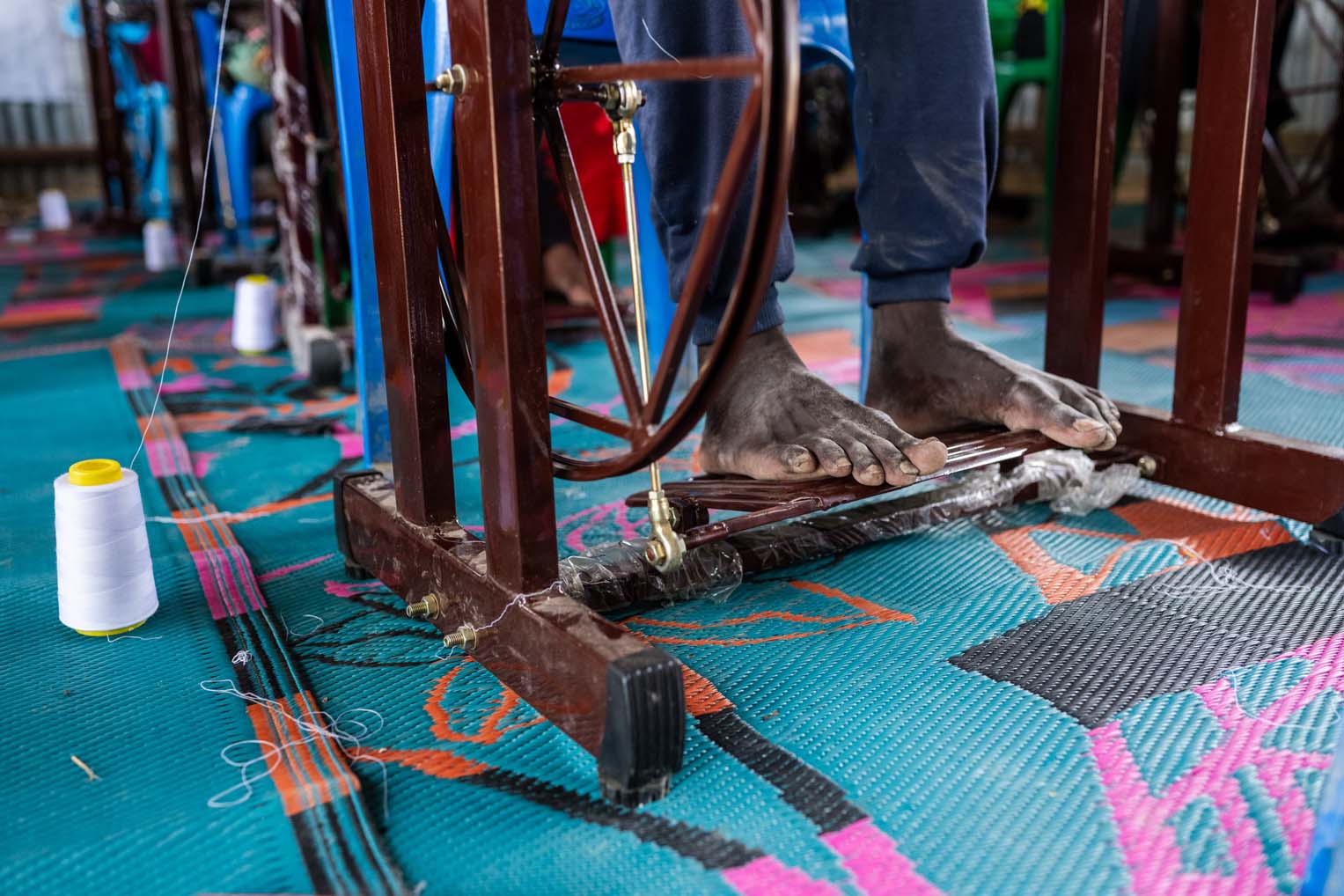
His feet carried him away from years of danger. Now they power his sewing machine as he works toward a new life one stitch at a time.
Each Sunday of the six-week program, a dozen or more students travel hours on foot from their villages to Mankien. They sleep at the homes of local church families, share meals, and spend hours learning together before making the long trek home the following Saturday—only to begin the journey all over again the next day.
What makes this remarkable is who’s sitting beside Timothy. His classmates include people from the Dinka, Nuer, and other tribal groups that fought each other during South Sudan’s 21-year civil war.
“In this class we are like neighbors and friends,” Timothy said.
During their five days together each week, they master sewing machine operation, clothing design, and business fundamentals. They learn to save money, invest in their craft, and grow small enterprises. The goal for them is to create turnkey operations back home—and gain the ability to teach others.
But technical skills aren’t the only core to the curriculum. Throughout each gathering, instructors and local pastors teach from Scripture, addressing trauma and conflict resolution alongside trade skills.
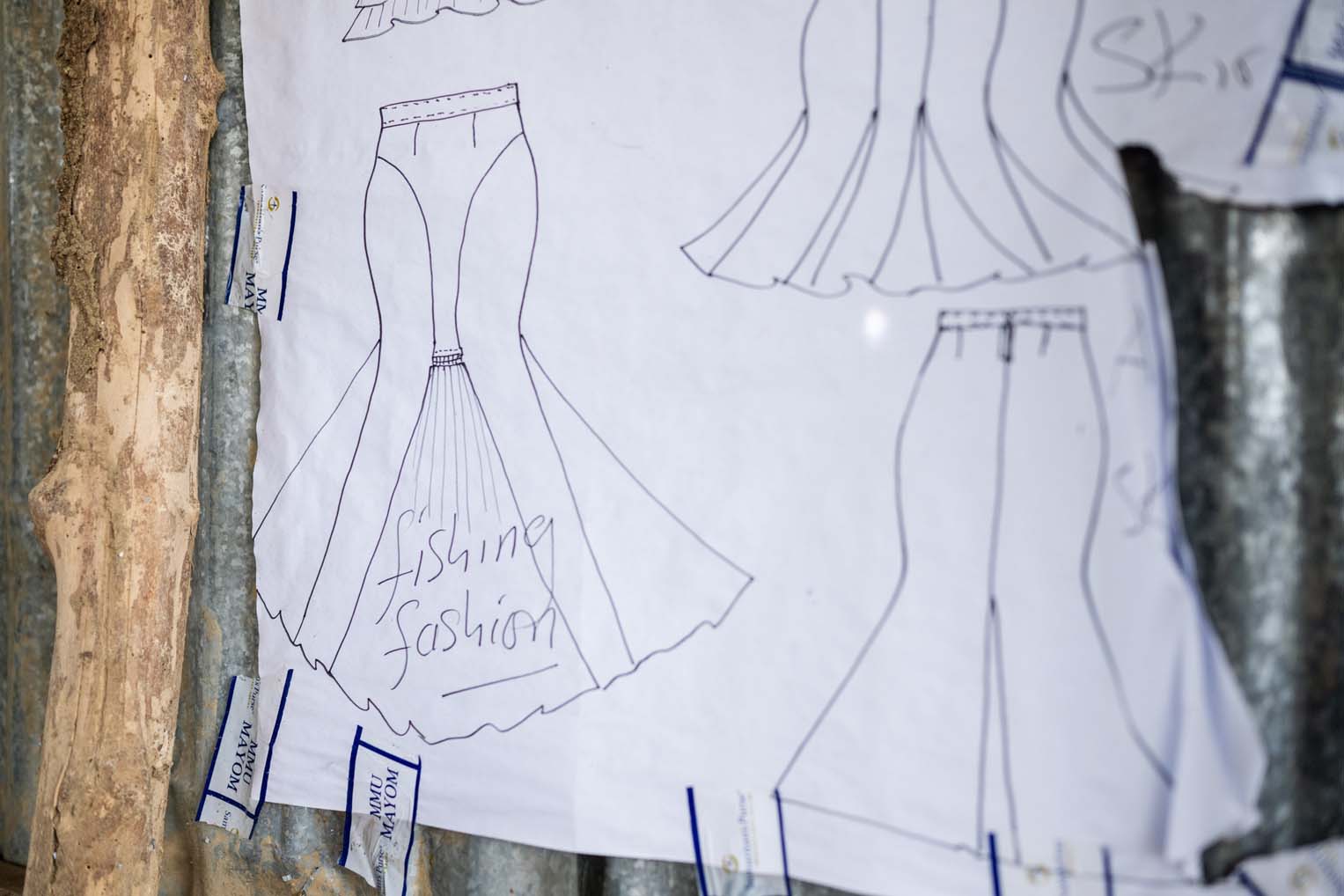
The class quickly moved from straight-line stitching to designing and creating quality pieces of women’s clothing such as dresses and skirts.
“I’ve come to learn that the Bible is very important,” Timothy said. “Maybe there is a conflict at home or with a neighbor. But when you come to listen to the Bible, your mind becomes fresh. The Bible is counseling us. We have trauma but the Bible is counseling and inspiring us to live in harmony with other people.”
This approach is integral to Samaritan’s Purse strategy in South Sudan, where we have worked for more than 30 years through numerous conflicts, floods, famines, and disease outbreaks.
Operating from offices on Addis Ababa Street in Juba—a street named for a 1972 peace agreement that ultimately failed to live up to its promise—the organization works alongside local churches with the belief that to “disarm the heart with Biblical teaching is to disarm the hands.” We pray that, by God’s grace, peace will prevail in the country.
The need remains urgent.
Even as Timothy’s class meets, Samaritan’s Purse is providing food, water, and medical care as tens of thousands of refugees flee violence in neighboring Sudan. Many have settled in South Sudan, living in towns to Mankien’s north, a reminder that peace in this region remains fragile.
Stitch by Stitch Toward Peace
In a few weeks, Timothy will make his final trek home, armed with his training and his new sewing machine and materials—gifts from Samaritan’s Purse for completing the course. As the village tailor, he’ll provide clothes for families while building his reputation in a community where he’s still relatively new.
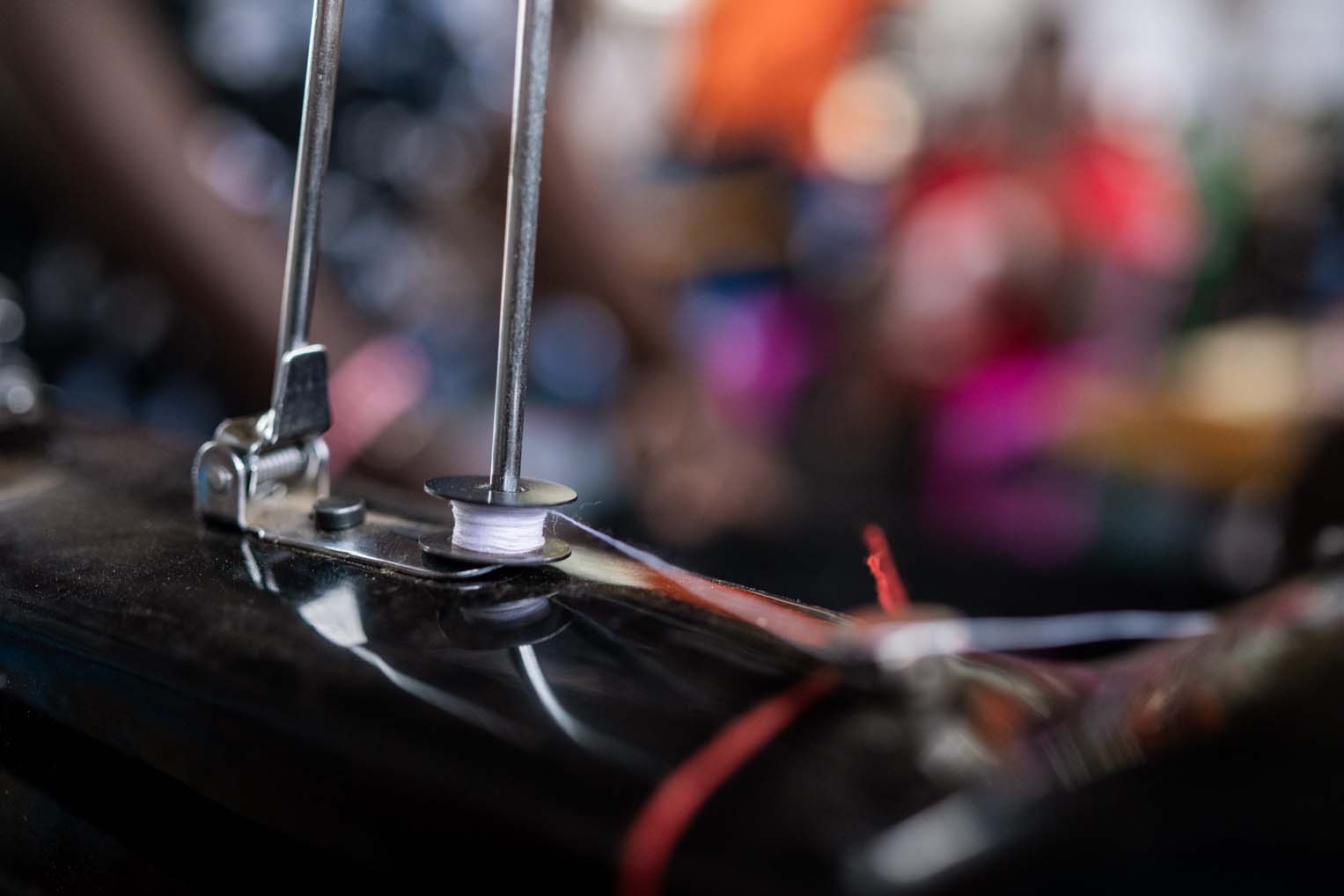
Stability and abundance can be woven into the fabric of communities that create a nation of peace, but not through signatures and grand overtures. It begins in hearts, then works outward stitch by stitch according to the design of a peace-loving God.
But his vision extends beyond personal success. “The news will spread that I learned this from Samaritan’s Purse,” he said, detailing plans to teach his wife and others. “I don’t want to own this training just for myself.”
Timothy believes his craft will draw customers across tribal lines, creating opportunities for human connections that help build understanding and peace at the local level.
“When people hear that you can design good fashion, they might come from different places for your work.
“This might mean different tribes. And when we meet, we greet each other. We sit down. We start talking. If people are already sitting to talk about how I can serve them and make their lives better, in that moment there is peace between us.”
Each of Timothy’s classmates will return home with similar hopes—and a similar commission to spread both sewing skills and, they pray, God’s peace-giving Word to create a place where neighbors can flourish together.
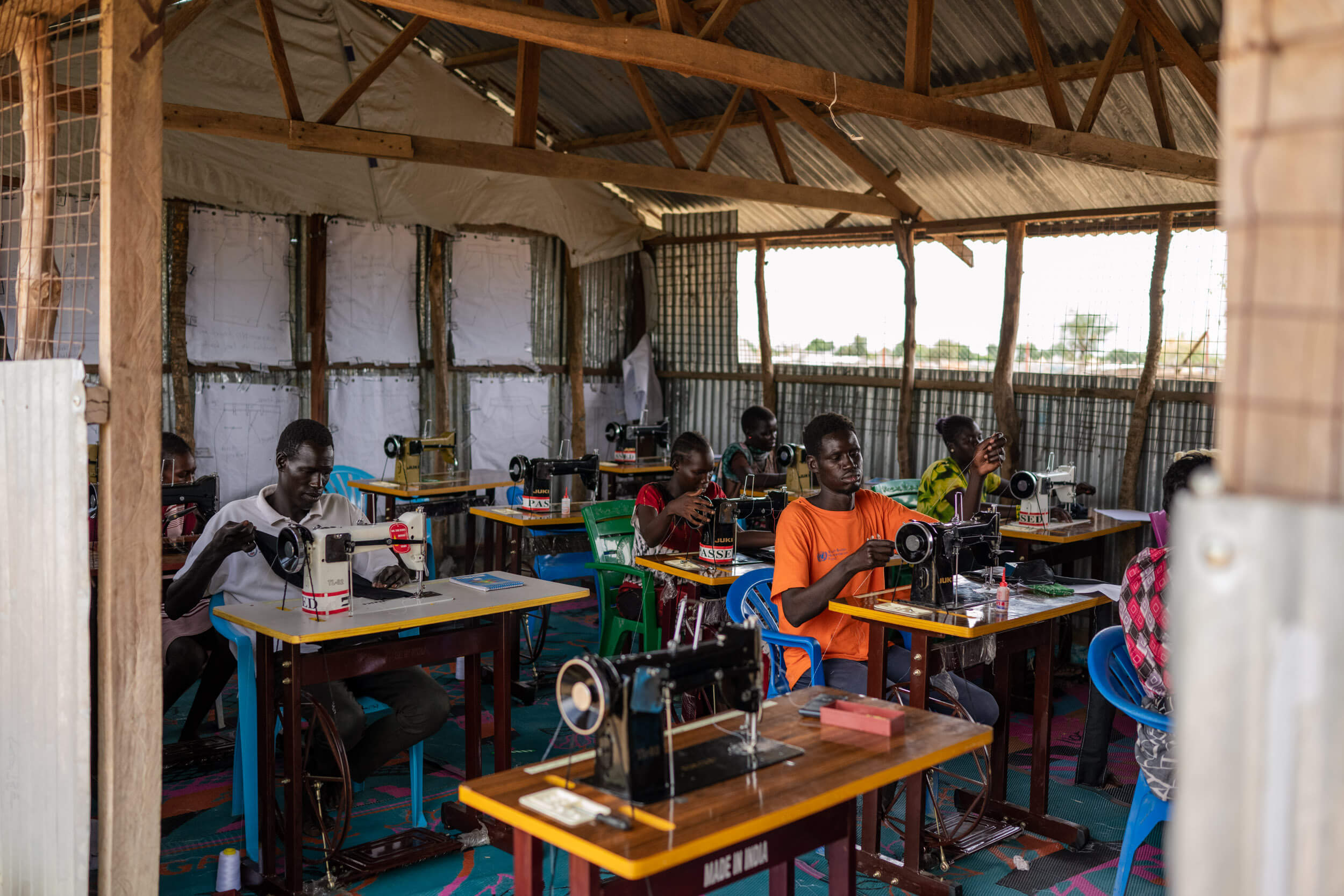
“When people hear that you can design good fashion, they might come from different places for your work.
This might mean different tribes. And when we meet, we greet each other. We sit down. We start talking. If people are already sitting to talk about how I can serve them and make their lives better, in that moment there is peace between us.”
